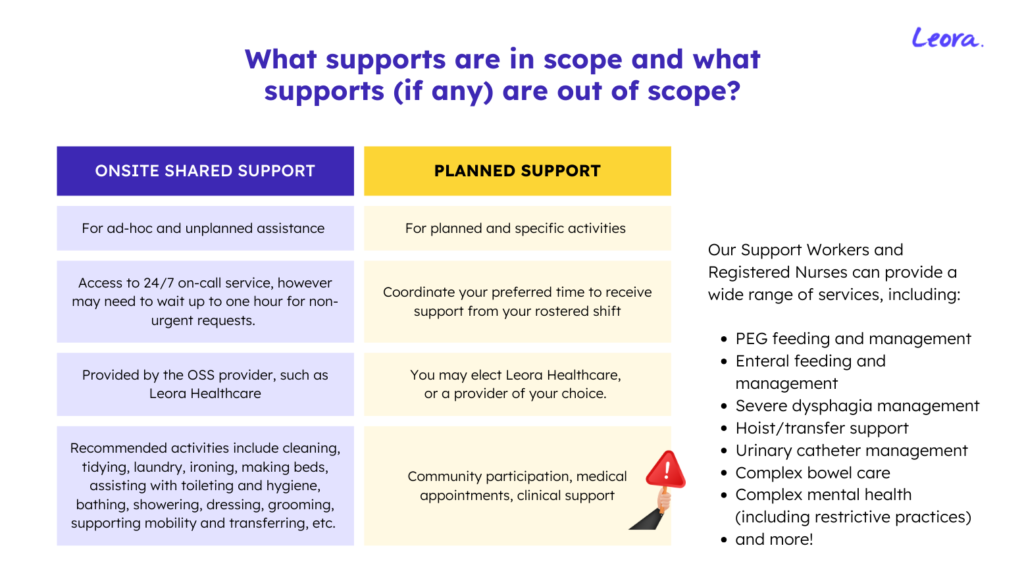You can receive onsite shared support, which you can utilise for emergencies or for ad-hoc/unplanned assistance, e.g. if you need help wiping a spill or making tea for friends who decided to drop by for a visit. This is a 24/7 on-call service.
If you want to coordinate your preferred time to receive support, or if you need assistance outside the SDA home or apartment (e.g. driving to appointments), you can also receive what is called planned support.








